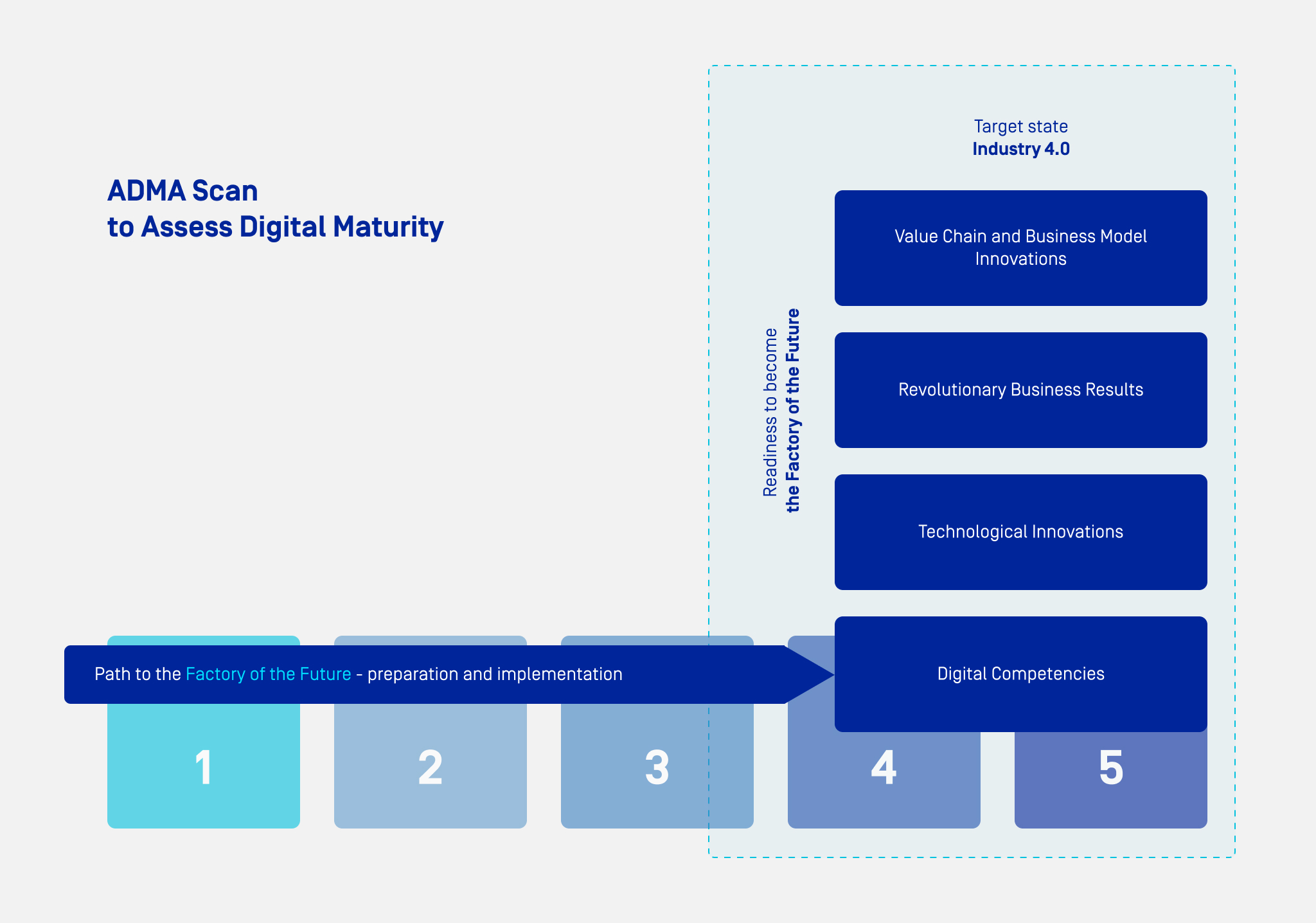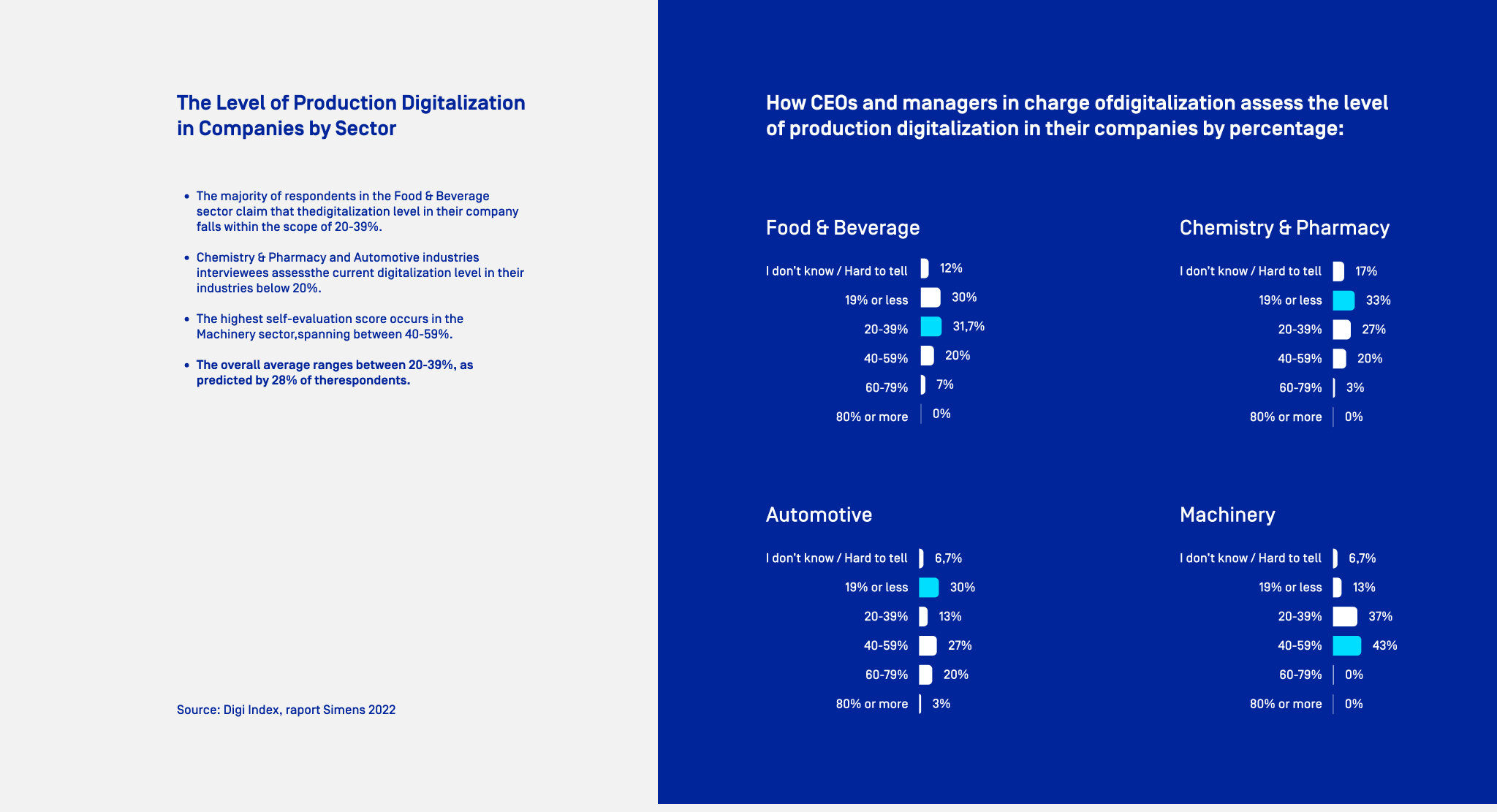
Digital Maturity and Return of Investment

Michał Zieliński
Does a company’s level of digital maturity affect its return on investment (ROI) in digitalization? Undoubtedly, it does, but how exactly?
It cannot be unambiguously claimed that this dependency is proportional or inversely proportional, or measurable with any formula.
By examining the levels defined in ADMA methodology, it becomes clear that all revolutionary business results, innovations, and competencies occur in the last stage. These notions alone suggest that the changes are indeed ground-breaking and will undoubtedly yield significant profit or savings.

Although there is no doubt that digitally mature enterprises can reach for the most refined solutions and implement them successfully, it doesn’t mean that a lower maturity level fares much worse.
It goes without saying that significant changes require large investments in finances, time, or work, which might effectively extend the investment return period.
On the other hand, there are “quick wins”, relatively simple and cheap investments that yield significant results. They are within the reach of companies beginning their journey, where even small improvements bring significant change. Of course, the technology absorption level will be lower here, as we are just getting used to digitalization. However, appropriate change management and expert assistance can facilitate this process.
The Digi Index report shows that most companies assess their digital maturity very low, while four years ago, this evaluation was a range higher. Interestingly, the isolation during the pandemic period gave an impulse for higher investments in digitalization, as well as more critical perception of oneself. This might mean that there is still great potential for applying dedicated solutions in the form of low-hanging fruits. Such solutions can be found in the product portfolio of ImFactory, the AVEVA MES Competence Center CEE.

With an investment that has a declared average profit level of 7.67%, significant leverage needs to be generated in the form of growth to guarantee a return in a reasonable period. To make this possible, it is worth planning initiatives by preparing a Digital Transformation Roadmap or performing a Pre-Implementation Analysis.

If you’d like to know more, contact us through the Consultation Form or on LinkedIn.

Michał Zieliński is a graduate in Automatic Control and Robotics, as well as a postgraduate Lean Six Sigma Black Belt from Gdansk University of Technology. He is a partner at ImFactory, where he works as a Project Manager and Head of the Digital Consulting Department. At ImFactory, he is involved in shaping a vision for the advancement of IT systems in manufacturing environments, evaluating the digital maturity of enterprises, and planning their Digital Transformation journey. His projects encompass a wide range of activities, from overseeing surveillance and monitoring installations to implementing comprehensive integrated manufacturing management systems.
See also
Want to learn more? Visit our Knowledge Base, where you'll find articles and webinars by experts to expand your knowledge.
Check if Digital Transformation is the Answer to Your Company's Needs
The Free Consultation Process:






























